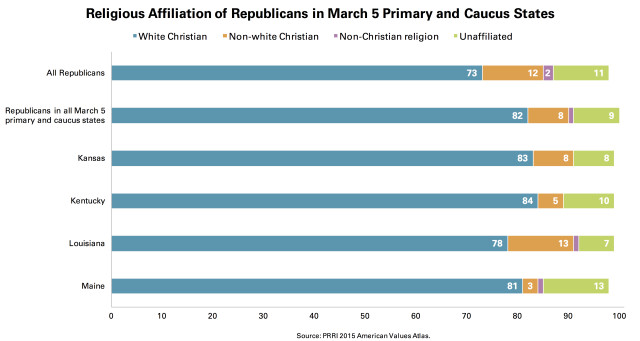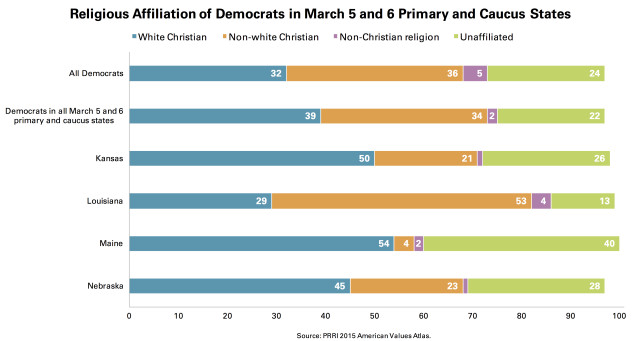Just days after Super Tuesday, five more states will dole out delegates this weekend: Kentucky Republicans and Nebraska Democrats will caucus, as will residents of both political stripes in Kansas and Maine; Louisiana residents will also vote in their state’s primary. Here’s a look at each state’s Republican and Democratic religious affiliation.
Republicans voting this weekend are even more likely than Republicans in Super Tuesday states to identify as white Christian: an overwhelming 82 percent of Republicans in the five states voting on March 5 identify as white Christian. In contrast, roughly three-quarters (74 percent) of Republicans in Super Tuesday states are white Christian.
Republicans in Kentucky, at 84 percent, and Kansas, at 83 percent, include the highest concentrations of white Christians including a considerable number of white evangelical Protestants: 48 percent of Kentucky Republicans and 36 percent of Kansas Republicans identify as white evangelical Protestant. Very few Republicans in these states are religiously unaffiliated.
When compared to Democrats in Super Tuesday states, more Democrats in the slate of states voting this weekend identify as white Christian: 39 percent are white Christian, 34 percent are non-white Christian, 22 percent are religiously unaffiliated, and two percent identify as a non-Christian religion.
A majority (53 percent) of Louisiana Democrats are non-white Christian, and a good chunk of those are black Protestants: 38 percent of Democrats in the state identify as black Protestants. And while most (54 percent) Democratic residents in Maine are white Christians, four in ten (40 percent) are religiously unaffiliated, an increasingly important Democratic constituency.
To explore the unique religious landscape of your state, check out the American Values Atlas.

